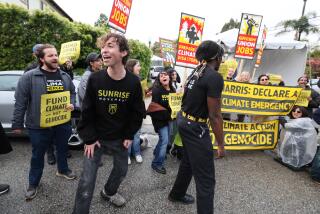The View From Memphis, April 4, 1968: All Uphill--and Still Uphill
April 4, 1968, is a day I have relived and revisited hundreds of times. I was living in Memphis then, with my wife, Dorothy, and three sons. I was also pastor of Centenary Methodist Church and chairman of the strategy committee for the sanitation workers’ strike.
That meant working almost around the clock, being Maced by the police, arrested and jailed, receiving all kinds of death threats, marching every day, overseeing the relief program for the 1,300 striking workers, who were now in poverty, and organizing and planning the day-to-day activities.
April 4 began like any other of the 63 days of that strike, except that in addition to our early morning strategy breakfast, I went by the Lorraine Motel and conferred with Dr. King, and then I went to federal court.
The city of Memphis had gotten a court order to keep Martin Luther King Jr. and me, the Southern Christian Leadership Conference, the workers, clergy and other groups from marching.
The court proceedings lasted into the afternoon. I then returned to my offices to work on sundry matters: The evening mass meeting, coming events, an evaluation of the daily march that had been completed while I was in court, talking to various leaders in the community, returning phone calls and meeting with the strategy team members.
My custom was to get home for supper with the family, so around 6 p.m. I drove home. While hugging Dorothy and the boys in the kitchen, I heard something about a shooting. It came from a television set in an alcove just off our dining room. I walked there and saw the printed announcement at the bottom of the screen: Dr. King had been shot at the motel and was being rushed to St. Joseph’s Hospital.
My immediate thought was that the movement, the strike must continue; we must move to prevent any panic or threat to a united effort. So I did my immediate grieving by traveling the city most of the night. I rushed first to a radio station and made an initial statement. While there, the Teletype brought word that Dr. King was dead. I made yet another statement reminding black people that we were in a movement for justice and dignity for the workers, that Dr. King would expect us to finish that effort, that we should close ranks and march as planned on April 5. We knew that we would remain engaged in a nonviolent struggle until victory, and that a victory for the workers would be a victory for the entire city.
I moved from radio station to television station to street corners. Because the mayor had declared a curfew and martial law, the governor ordered in the Tennessee National Guard. I urged the fire and police commissioners to give me an emergency pass so that I could continue my work without being arrested.
Our people remained calm. On April 5 at 9 a.m. that day we marched. Of course, the police tried to prevent the march. But we were prepared to commit civil disobedience by the hundreds and probably thousands, so they relented.
On Monday, April 8, about 30,000 people, joined by Mrs. King and her family, marched and held a memorial service at City Hall in Memphis.
On April 9, we suspended the marching while Dorothy and I and hundreds of others flew to Atlanta for the King services. The next morning we marched again in Memphis.
On April 16, negotiations were finally successful and signed by the mayor. The strike ended.
In the 1980s too many people--black, white and women--who have benefitted from the gains of the King movement have separated themselves from concerns for the homeless and hungry. If they marched in the 1960s, they pretend that today people need no longer engage in peaceful assembly for the redress of wrong.
Twenty years later the walls of Jericho--violence, racism and poverty--still stand. But those walls can come tumbling down, and will, as millions of people, in the spirit of Dr. King, march for dignity, justice and community.
More to Read
Sign up for Essential California
The most important California stories and recommendations in your inbox every morning.
You may occasionally receive promotional content from the Los Angeles Times.










